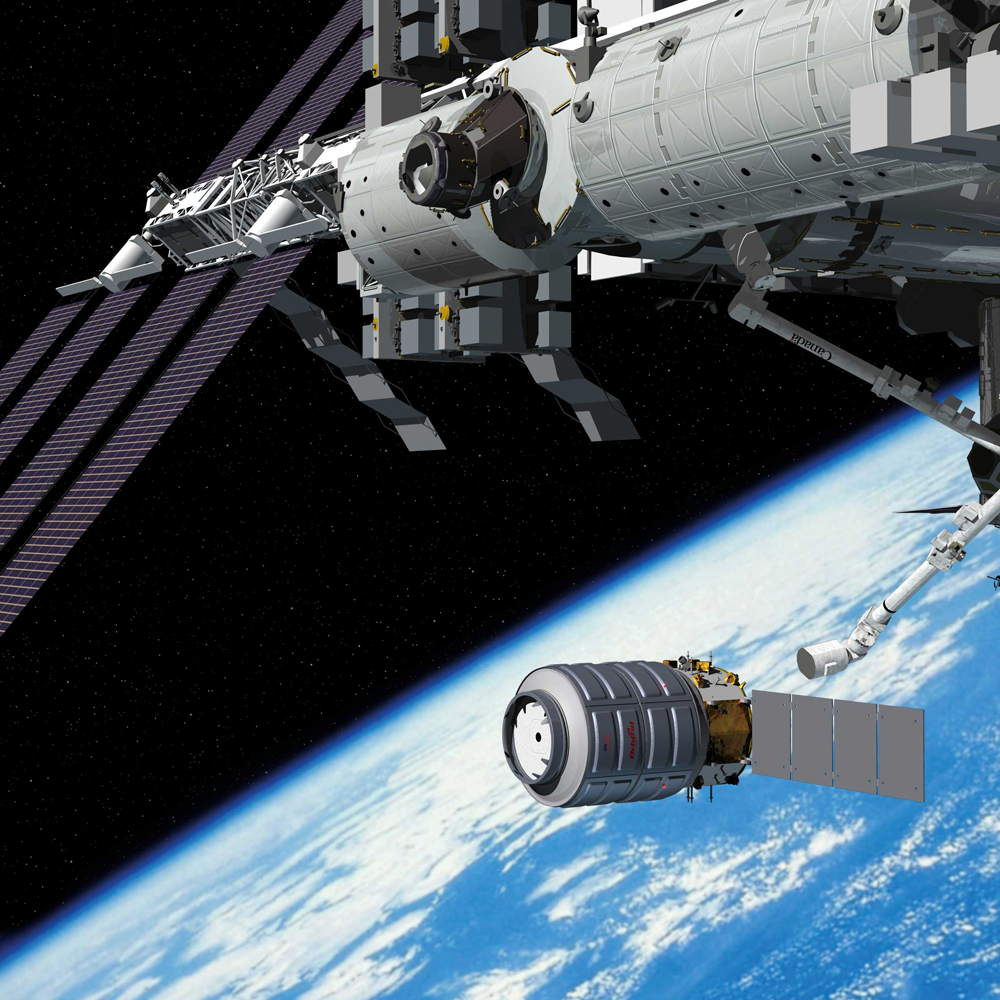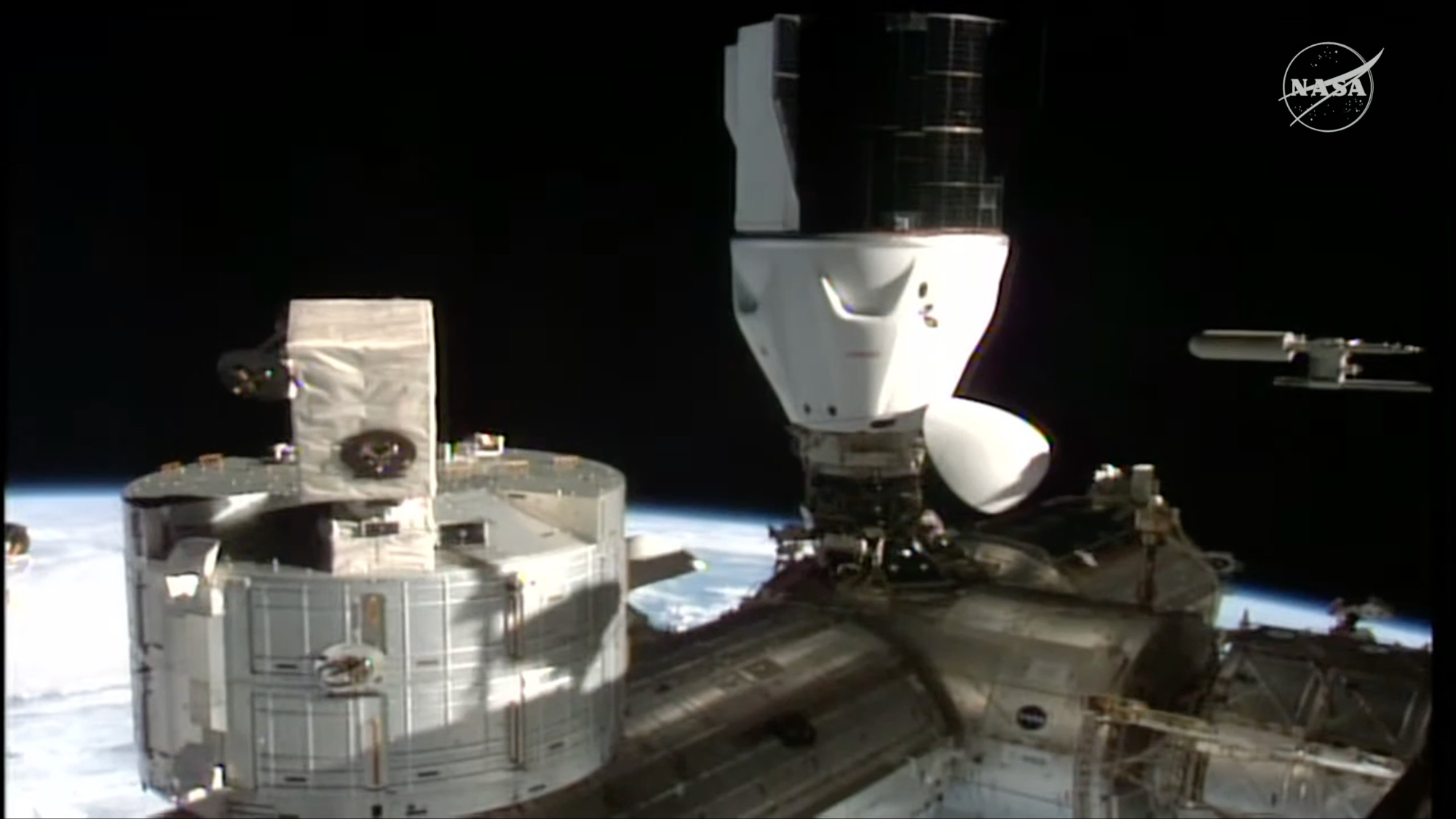Space Station Traffic Jam Delays 1st Arrival of New Private Cygnus Spacecraft

The first arrival of a brand-new commercial cargo ship at the International Space Station has been delayed until no earlier than Saturday (Sept. 28) to make way for a new crew launching to the orbiting lab this week, NASA officials say.
The unmanned Cygnus spacecraft built by Orbital Sciences Corp. — which launched into orbit on Sept. 18 — was initially expected to link up with the station on Sunday (Sept. 22), but a software glitch forced controllers to abort the arrival and wait at least 48 hours for the next attempt.
Today, NASA and Orbital officials said the supply ship will not arrive at the space station until Saturday, in part because a new station crew — Russian cosmonauts Oleg Kotov and Sergey Ryazanskiy and NASA astronaut Michael Hopkins — is launching to the orbiting lab Wednesday (Sept. 25) on a Russian Soyuz capsule. [See photos of Orbital Sciences' 1st Cygnus spacecraft flight]
"This new schedule will allow the Orbital operations team to carefully plan and be well-rested before restarting the critical final approach to the space station," Frank Culbertson, Orbital's executive vice president and general manager of its advanced programs group, said in a statement. "Meanwhile, Cygnus has all the resources needed to remain in orbit for an extended period of time."
Orbital's Cygnus spacecraft team has now tested software to fix the software glitch that prevented the attempted rendezvous with the space station on Sunday. Because of extra time needed for that troubleshooting, as well as the impending Soyuz launch and docking on Wednesday, the team opted to push the Cygnus arrival at the station until the weekend at earliest, company officials said.
Officials with NASA and Orbital Sciences do not have an exact timeframe for Cygnus' approach and rendezvous yet, but once Soyuz operations are complete the space agency and private firm will develop a schedule.
The now-Saturday rendezvous will mark the first time a Cygnus capsule has visited the space station. The spacecraft is designed to be captured by the astronauts using the station's robotic arm, and then attached to an open docking port. The current mission is a demonstration flight to show that Cygnus and its Antares rocket can safely haul supplies to the $100 billion outpost. Orbital Sciences holds a $1.9 billion contract with NASA to fly eight missions with Cygnus and Antares.
Breaking space news, the latest updates on rocket launches, skywatching events and more!
Cygnus won't be the first private cargo ship to dock with the International Space Station. SpaceX, which is led by billionaire Elon Musk, also hold a private contract with NASA to make 12 flights using its Dragon capsule and Falcon 9 rocket. Dragon has already completed two of its contracted resupply missions.
Cygnus can carry about 4,400 pounds (2,000 kilograms) of cargo in its current configuration, but it's bringing only 1,540 pounds (700 kg) of supplies to the station on this demonstration mission.
SPACE.com is providing complete coverage of Orbital's first Cygnus test flight to the International Space Station. SPACE.com partner Spaceflight now is also offering updates via its Cygnus Mission Status Center.
Follow Miriam Kramer @mirikramer and Google+. Follow us @Spacedotcom, Facebook and Google+. Original article on SPACE.com.
Join our Space Forums to keep talking space on the latest missions, night sky and more! And if you have a news tip, correction or comment, let us know at: community@space.com.

Miriam Kramer joined Space.com as a Staff Writer in December 2012. Since then, she has floated in weightlessness on a zero-gravity flight, felt the pull of 4-Gs in a trainer aircraft and watched rockets soar into space from Florida and Virginia. She also served as Space.com's lead space entertainment reporter, and enjoys all aspects of space news, astronomy and commercial spaceflight. Miriam has also presented space stories during live interviews with Fox News and other TV and radio outlets. She originally hails from Knoxville, Tennessee where she and her family would take trips to dark spots on the outskirts of town to watch meteor showers every year. She loves to travel and one day hopes to see the northern lights in person. Miriam is currently a space reporter with Axios, writing the Axios Space newsletter. You can follow Miriam on Twitter.
